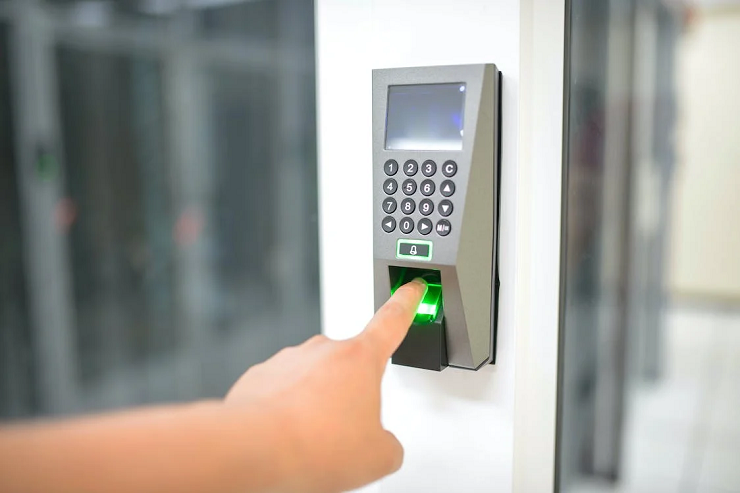
The realm of the digital sphere is swiftly changing which makes presence of strong security protocol an utmost priority. Together with reinforcing safeguarding, biometric security provides an innovative resolution that elevates user convenience. Biometrics is the most effective method for quickly and reliably identifying and verifying people.
Biometric security systems that utilize fingerprints, facial recognition, iris scans, and other unique physical traits to identify individuals are becoming increasingly common. While biometric technologies provide enhanced security and convenience, they also raise valid privacy concerns. In our digital world, how can we enjoy the benefits of biometric security while ensuring ethical usage and protection of user data? Let’s see in the upcoming section of the blog.
The Growth of Biometrics
The global biometric technologies market is projected to grow from $33 billion USD in 2021 to over $120 billion by 2026. Factors driving this growth include rising data security threats, identity fraud concerns, demand for contactless user experiences, and accessibility regulations. Major corporations have eagerly adopted biometrics for employee access, financial transactions, and device logins. Airports, stadiums, theme parks, and other enterprises use biometric screening to increase security and efficiency.
Concerns over Privacy and Ethics
While innovators highlight user convenience and platform security as primary benefits, critics argue widespread biometric data collection violates civil liberties. Digital platforms tend to use or sell user data profiles for profit. Ergo, critics contend employing biometric identifiers such as fingerprints and facial scans to access these platforms increases potential ethical issues and privacy violations. Additional concerns include data leaks, surveillance overreach, and vulnerably stored information accessed by hackers. Data is the new currency and can fetch millions on the dark web. Unscrupulous elements and nefarious hackers are also employing cutting-edge technologies to gain access to this sensitive biometric data. They make use of primary data to create sophisticated solutions to make further data breaches into the politico-economic ecosystem of the world.

Ensuring Ethical Usage
The first step toward ethical biometric implementation is transparency regarding collection and usage. Users should fully consent to enrollment and understand the specific purposes the data will serve. Secondly, biometric verification – matching live samples against a stored sample – is less vulnerable than identification models which can be abused for mass surveillance. Responsible vendors allow users control over their data, permitting them to update information or delete it altogether. Governments around the globe too are ignorant and lack the proper understanding of the potential pitfalls of sensitive data usage. They need to engage with industry experts and stakeholders to come up with systems and procedures that ensure the ethical and consented usage of biometric data for the larger goodwill.
Implement Strict Data Governance
Compliance with regulations like GDPR and rigorous in-house data governance policies will help ensure privacy and accuracy. Biometric data should be stored securely in encrypted databases and only be transmitted over secure channels. Providers should conduct routine audits to identify potential abuse including unauthorized employees accessing sensitive data. Moreover, they must document procedures for reporting and containing data breaches or other threats.
Foster Public-Private Partnerships
Governments developing biometric databases should partner with privacy advocacy groups, leading technology companies, and human rights organizations. By collaborating across sectors, effective regulatory frameworks arise that stimulate innovation while protecting citizens. Public-private coalitions can conduct research improving security protocols, identifying vulnerabilities and standardizing best practices for ethical biometric implementation.

The Pros and Cons of Biometric Payment Systems
In recent years, Mastercard, Visa, and fintech providers have introduced biometric payment authorization including fingerprint, face, and iris scans. The fintech businesses face more than ever the risk of switching to biometric-based authentication rather than traditional. China, India, and Nigeria use biometric identification linked to digital wallets. Proponents praise the security and simplicity of seamless biometric payments integrated into smartphones or wearables. However, critics argue once biometric payment data leaks or gets hacked, consumers face difficulty reversing the breach and opening new accounts. This could devastate victims.
Others warn the global integration of biometric fintech in cashless societies further endangers marginalized groups lacking identity verification. Partnerships between governments and payment providers shape economic inclusion and determine who can access digital finance tools. As biometrics spread, activists must champion ID access for refugees, homeless populations, and developing world citizens still lacking official documentation. Financial inclusivity is the hallmark of the well-developed fintech ecosystem. Let the benefits of so beautiful technologies cascade to all groups.
Conclusion
Mass adoption of biometric tech seems inevitable, but thoughtful regulation and vigilant oversight can mitigate ethical perils. Via constructive collaboration between the public and private sector, continuous audits and investment in security, biometric platforms can largely prevent privacy violations and data abuse while allowing individuals and institutions to benefit from their many conveniences. If stewarded properly, seamless and highly secure biometric access has the potential to build trust in digital spaces. Rather than automatically assuming Orwellian outcomes, perhaps next-generation biometric platforms guarded by constitutional protections will mark an important milestone in the gradual perfection of free societies.
